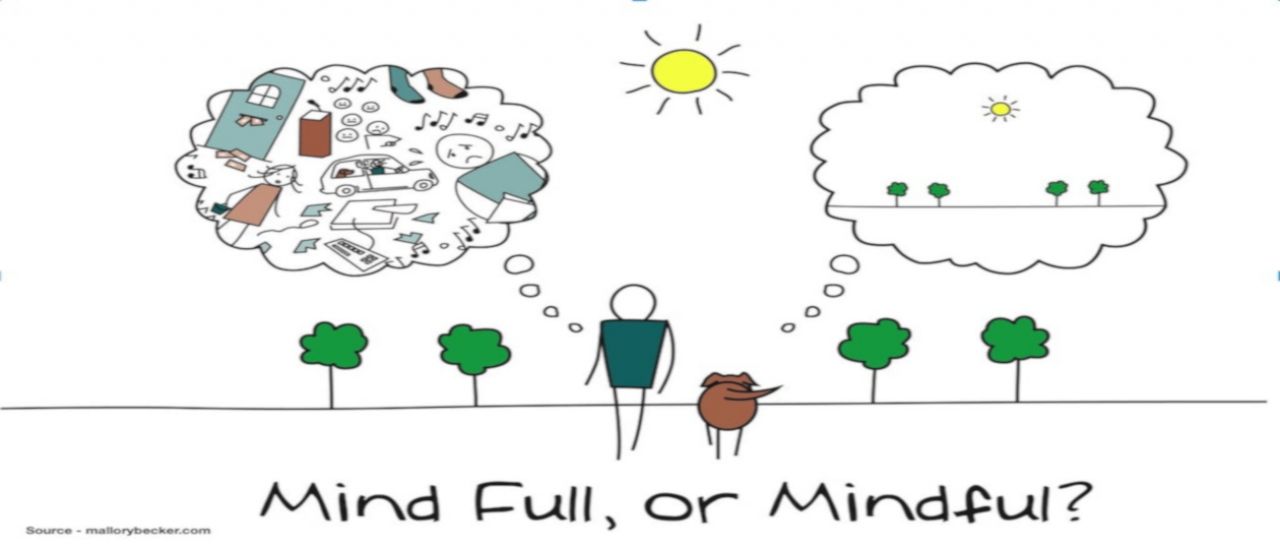
28 February 2020
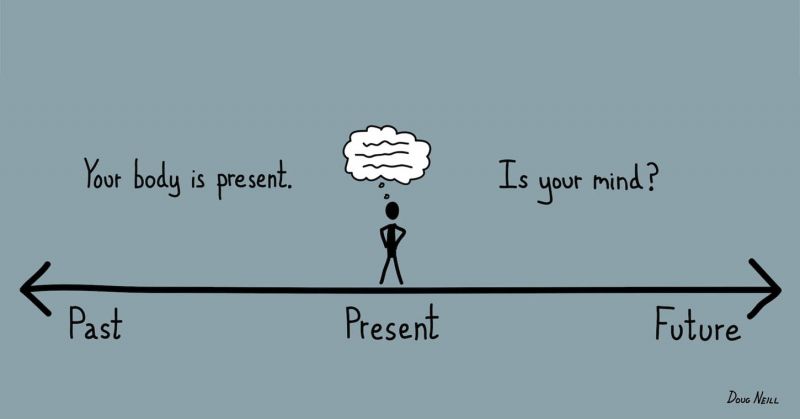 The NHS UK website describes Mindfulness as:
The NHS UK website describes Mindfulness as:
"Paying more attention to the present moment – to your own thoughts and feelings, and to the world around you"
In other words Mindfulness is about knowing what is going on both in and outside your body in the here and now, without judgement. Mindfulness enables us to step out of the mire of confusing thoughts and feelings and as opposed to being IN (or part of) that confusion we become the witness to it. We become the Observer as opposed to being caught up in those thoughts and feelings. This in and of itself builds space around our body and those thoughts supporting us to repond in a non-reactive way.
Another definition says:
"Mindfulness is the psychological process of purposely bringing one's attention to experiences occurring in the present moment without judgement, which one develops through the practice of meditation and through other training" Kabat-Zinn J (2013). Full Catastrophe Living: Using the Wisdom of Your Body and Mind to Face Stress, Pain, and Illness. New York: Bantam Del
The Oxford Mindfulness Centre puts it this way:
"Mindfulness is moment-to-moment awareness of one's experience, without judgement."
Mindfulness helps us reconnect with our bodies. That may sound like a very odd thing to say, but consider this for a moment. Don't you find that sometimes you live your life by habit? How many times have you driven somewhere and upon arriving at your destination realised that many parts of the journey - perhaps the entire journey - are a complete blank? You drove by habit as the route was so familiar and your mind was elsewhere, in other words your unconscious mind took care of the driving whilst your conscious mind took you elsewhere.
 In a very similar way, we wake up of a morning and often move into a list automatic and robotic tasks that see us up, washed and dressed and ready for work. Our minds are usually disconnected from this - usually planning the day ahead.
In a very similar way, we wake up of a morning and often move into a list automatic and robotic tasks that see us up, washed and dressed and ready for work. Our minds are usually disconnected from this - usually planning the day ahead.
Our minds are often preoccupied with our "to-do lists", memories of the past and concerns of the future and we forget to be in the "here and now", however, in reality, the past is history and the future fantasy. Living outside of our bodies in this way can be a source of anxiety and stress and can adversely affect our sense well-being.
James Joyce, a famous author wrote of a character in one of his books: "Mr Duffy lived a short distance from his body" - and as we can see from what we have discussed above, this can be true for us all. Mindfulness allows us to hit pause, to take a step back, to breathe and to bring our awareness to what we are feeling right now, in the moment, without clinging on to the past, or feeling anxious toward the future. Mindfulness isn't trying to clear ones mind or to try to stop thinking, but to focus one’s attention on the present – the sights, the sounds, the smells, taste, and emotions you’re experiencing at the present moment without judgement. It's about cuing into what all our senses are telling us and paying attention and listening to this. In this way our bodies become truly alive and mind and body are connected - we become truly present in the moment.
How often do we actually do this? Very seldom, I would suggest, as we rush around from moment to moment with a head full of "I must do this, I need to do that, I ought, I should . . ." and so on and so forth. We become human doings when we're actually human beings.
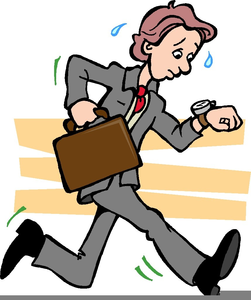 I remember, when I lived in Yeovil I used to shop regularly at Morrison's. One day I was at the till and the assistant said "we call you the Running Man" "what?" I asked, laughing. "well you don't walk around the store, you kind of run, you're always in a rush." I thought about that: "you're always in a rush" - and they were right; and this is life for many of us pretty much all the time. We're preoccupied with one thing then it's on to the next, and the next, and then the next. We almost value our lives and experiences by how busy we are. When we do find any semblance of "free time" we turn on the TV, reach for the tablet or phone - rarely do we ever stop, purposely relax, breathe and collect ourselves and tune into ourselves. Then we wonder why we get stressed and anxious and sick.
I remember, when I lived in Yeovil I used to shop regularly at Morrison's. One day I was at the till and the assistant said "we call you the Running Man" "what?" I asked, laughing. "well you don't walk around the store, you kind of run, you're always in a rush." I thought about that: "you're always in a rush" - and they were right; and this is life for many of us pretty much all the time. We're preoccupied with one thing then it's on to the next, and the next, and then the next. We almost value our lives and experiences by how busy we are. When we do find any semblance of "free time" we turn on the TV, reach for the tablet or phone - rarely do we ever stop, purposely relax, breathe and collect ourselves and tune into ourselves. Then we wonder why we get stressed and anxious and sick.
Stacks of evidence demonstrate that Mindfulness can help us enjoy life more and understand ourselves better, for example Mental Health UK say:
"Mindfulness is recommended as a treatment for people with mental ill-health as well as those who want to improve their mental health and well-being."
they go on to say:
"Mindfulness meditation has been shown to affect how the brain works and even its structure. People undertaking mindfulness training have shown increased activity in the area of the brain associated with positive emotion – the pre-frontal cortex – which is generally less active in people who are depressed.
Many studies have shown changes in brain wave activity during meditation and researchers have found that areas of the brain linked to emotional regulation are larger in people who have meditated regularly for five years or more. The evidence for mindfulness is promising and research has grown in recent years."
Evidence suggests that Mindfulness can help us:
So we are talking about a practice that has its roots and foundation in science and which can work to help us feel better about ourselves, listen to our bodies, take care of ourselves, notice the beauty of the world we live in and our natural connection with it, become better at what we set our minds to achieve and live healthier lives. Mindfulness gives us the ability to pause and think before we do, in other words we become less stuck in a cycle of reactive behaviour due to bringing mindful awareness to how we are in any given situation. This allows us to "release the pressure"; releasing tension in the body and soothing the mind, allowing space to develop around and within both us and the issue arising thus enabling us to react with awareness and positivity.
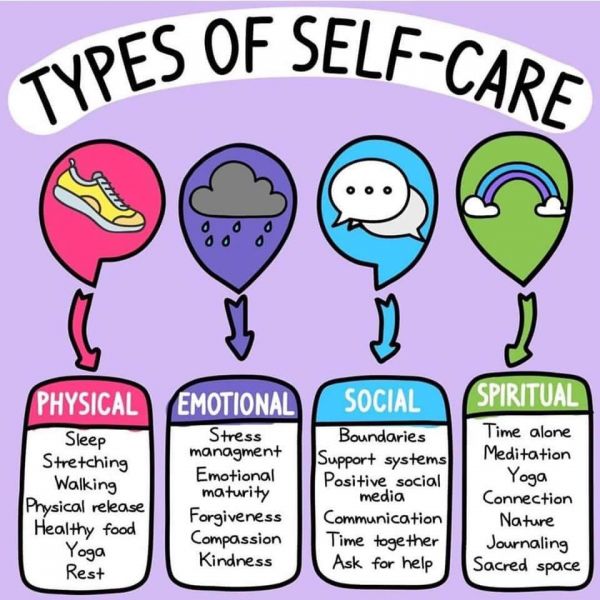 We hear and we read a lot about "self-care" however self-care is impossible if we are unable to treat ourselves with compassion - with kindness. Mindfulness facilitates this by helping us really listen to "what's going on inside" right now. You might pause and start to listen to yourself and you may notice that your "self-talk" is critical or judgemental, you may notice that you have tightness around your shoulders or in your belly where you are carrying stress, you may notice frustration from not getting very far on your "to do" list. You might notice angst toward your line manager following a recent comment they made. Mindfulness supports you in noticing these things and once you notice them you can choose whether to engage with what you notice or to simply say "okay, I notice you - but I don't have to be you." We can then bring kindness to that area and this may lead to us taking better care of ourselves, building more positive relationships and actually becoming more productive.
We hear and we read a lot about "self-care" however self-care is impossible if we are unable to treat ourselves with compassion - with kindness. Mindfulness facilitates this by helping us really listen to "what's going on inside" right now. You might pause and start to listen to yourself and you may notice that your "self-talk" is critical or judgemental, you may notice that you have tightness around your shoulders or in your belly where you are carrying stress, you may notice frustration from not getting very far on your "to do" list. You might notice angst toward your line manager following a recent comment they made. Mindfulness supports you in noticing these things and once you notice them you can choose whether to engage with what you notice or to simply say "okay, I notice you - but I don't have to be you." We can then bring kindness to that area and this may lead to us taking better care of ourselves, building more positive relationships and actually becoming more productive.
Treating ourselves with kindness, truly valuing ourselves, makes the above possible and not just possible but it will come from a place of calm and peace.
Embedding Mindfulness into organisational structure, policy, practice, ethos and philosophy brings many benefits, for example:
.jpg) You First's infrastructure consists entirely of people. We are an organisation of people who support people to support other people. It's all about people! Mindfulness will support our team members to listen, be aware of and take care of themselves meaning all of us will be in a far better place to reach out to others. Make no mistake, the work that You First Support Workers undertake can be stressful. The You First offer is incredibly broad and team members often find themselves in situations that can bring a degree of personal challenge triggering the fight, flight or freeze response we all encounter at times - or "survival mode" as it is also known. Mindfulness will support people to hit pause and operate from a place of non-reactive awareness that better supports the person using the service and that takes good care of the team member as well. Everyone benefits!
You First's infrastructure consists entirely of people. We are an organisation of people who support people to support other people. It's all about people! Mindfulness will support our team members to listen, be aware of and take care of themselves meaning all of us will be in a far better place to reach out to others. Make no mistake, the work that You First Support Workers undertake can be stressful. The You First offer is incredibly broad and team members often find themselves in situations that can bring a degree of personal challenge triggering the fight, flight or freeze response we all encounter at times - or "survival mode" as it is also known. Mindfulness will support people to hit pause and operate from a place of non-reactive awareness that better supports the person using the service and that takes good care of the team member as well. Everyone benefits!
This is about You First caring for and valuing team members by equipping people to take care of their mental, as well as their physical health, at work and beyond. It's about holistic team support.
A small group of people are currently undertaking an 8 week course, led by Mindfulness UK. We are about half-way through the course and the objective then is to roll out wider mindfulness training. Andy Robinson, You First's CEO already has training qualifications alongside his social care and management qualifications, however he is undertaking further training specifically around training people in Mindfulness. This will support and enable the rolling out of Mindfulness practice across the Social Enterprise as an effective and powerful tool for people to use in terms of managng their inner world.
Our Tutor asked us what we thought You First would look like once Mindfulness was embedded and this is what people on the course said:
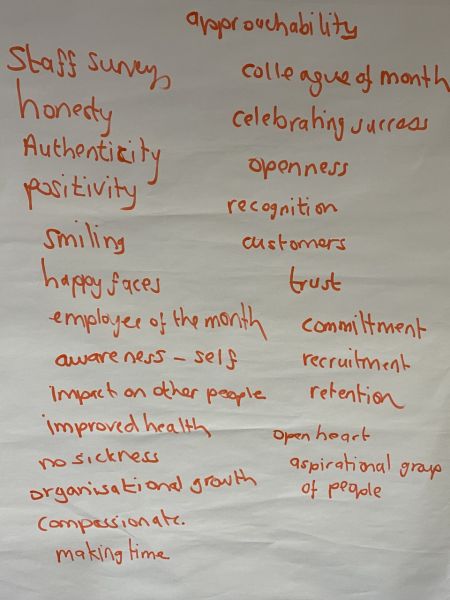
A really positive response that I was pleased with.
Once the eight week training has completed Mindfulness will be an agenda item for everyone's One-to-Ones and in the regular Micro-Team Meetings that team members take part in.
It will be interesting, and exciting, to track the personal, professional and organisational development following this and to see how this increasing sense of personal awareness informs the many projects You First has planned for the forward year.